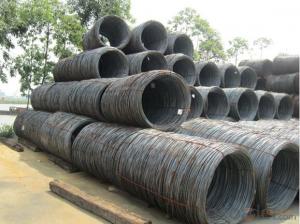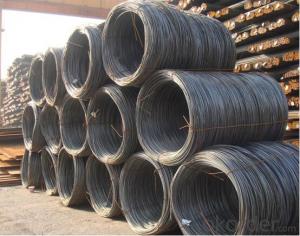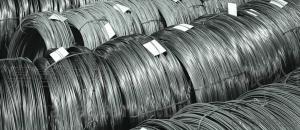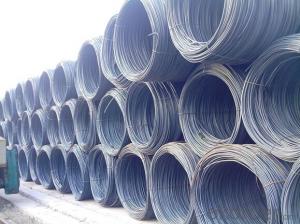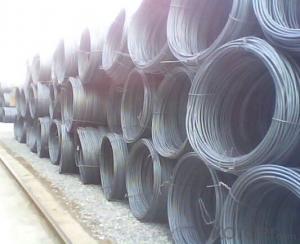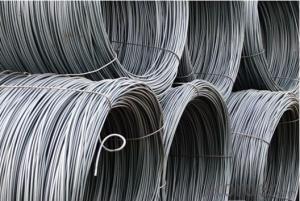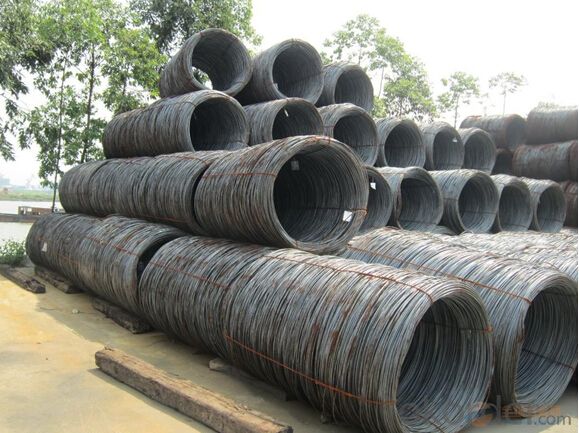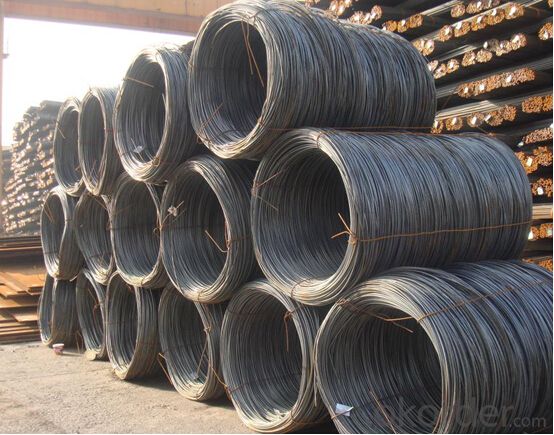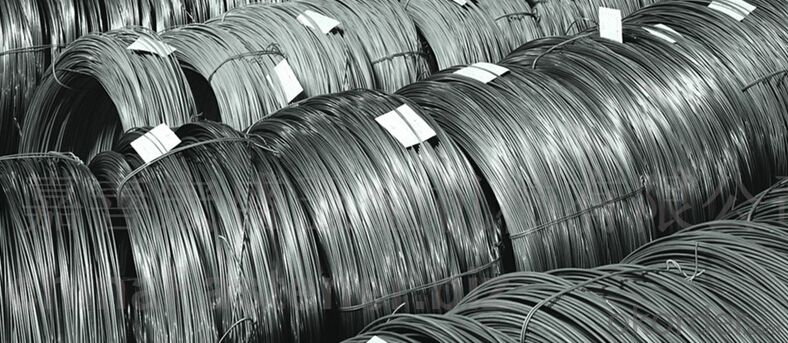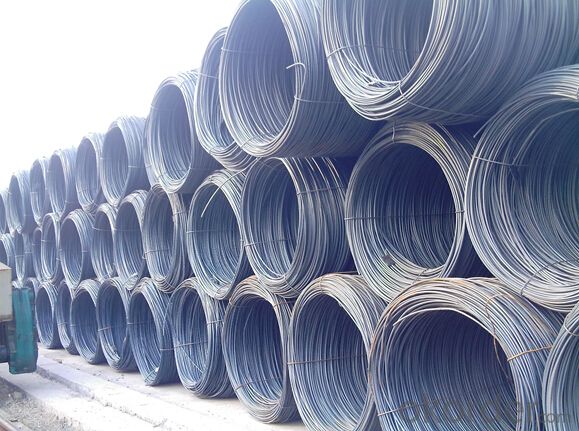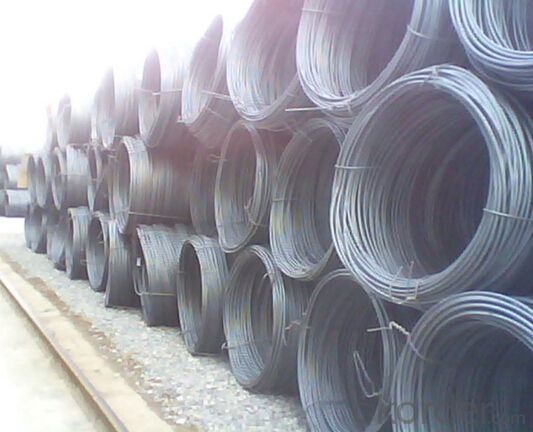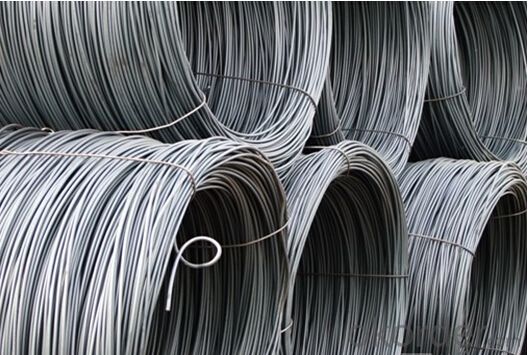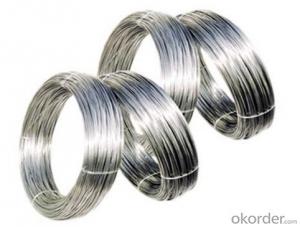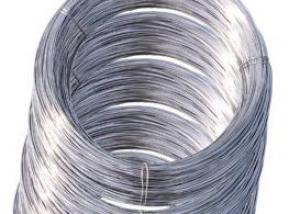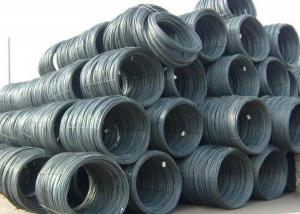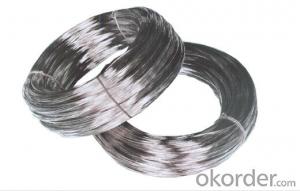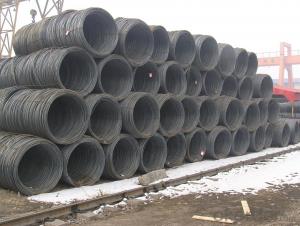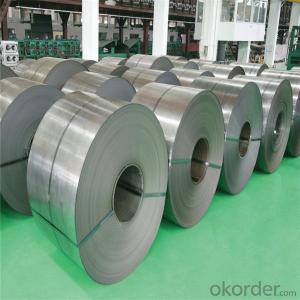Grade 304 Stainless Steel wire rod in Coils
- Loading Port:
- Tianjin
- Payment Terms:
- TT OR LC
- Min Order Qty:
- 3 m.t.
- Supply Capability:
- 10000 m.t./month
OKorder Service Pledge
Quality Product, Order Online Tracking, Timely Delivery
OKorder Financial Service
Credit Rating, Credit Services, Credit Purchasing
You Might Also Like
Specification
Type:
Carbon Steel,Spring Steel,Bearing Steel,Gear Steel,Deformed Steel,Stainless Steel,Alloy Steel
Shape:
Steel Coil,Steel Sheet,Steel Wire Rod,Steel Flat Bar,Steel Square Bar,Steel Angle,Steel Round Bar,Steel Billets
Technique:
Hot Rolled,Cold Rolled,Cold Drawn,ERW,Forged,Saw,Extruded,EFW,Spring
Surface Treatment:
Galvanized,Coated,Copper Coated,Color Coated,Oiled,Dry,Chromed Passivation,Polished,Bright,Black,PVDF Coated
Certification:
ISO,SGS,BV,IBR,RoHS,CE,API,BSI,UL
Thickness:
0.01-3.0mm
Width:
0.01-3.0mm
Length:
In coils
Outer Diameter:
0.01-3.0mm
Net Weight:
2m.t.
Packaging:
Seaworthy packaging
Grade 304 Stainless Steel wire rod in Coils
Detailed Information of the Grade 304 Stainless Steel wire rod in Coils
| Name | Hot Rolled High Carbon Wire Rod |
| Shape | Round Bar/Square Bar/Flat Bar/Plate/Wire |
| Standard | GB/ASTM/SAE/AISI/DIN/JIS/EN/BS |
| Surface Treatment: | Black/Peeling/Polished/Machined |
| Delivery Condition: | Hot Rolled or Forged/Peeled or Black Surface |
| Test | SGS/UT 100% Elements Testing |
| Certificate: | ISO/Mill Certificate |
| Service: | 24 hours online service / |
| more than 20 years trading and manufacture | |
| Quality Assurance: | the third party inspection, such as SGS, BV, TUV…etc. is acceptable |
| Packaging Details: | Seaworthy Packaging or as per customer's packing instruction |
Chemical Composition of the Grade 304 Stainless Steel wire rod in Coils
| Grade | Chemical Composition(%) | |||||
| C | Mn | Si | S | P | B | |
| SAE1008 | 0.1max. | 0.3~0.50 | 0.15max | 0.050max | ≤0.040 | >0.0008 |
| Mechanical properties | ||||||
| Yield strength(N/mm2) | Tensile strength(N/mm2) | Elongation(%) | ||||
| 250-280 | 350-380 | ≥32 | ||||
Company Introduction the Grade 304 Stainless Steel wire rod in Coils
CNBM International Corporation is the most import and export platform of CNBM group(China National Building Material Group Corporation) ,which is a state-owned enterprise, ranked in 270th of Fortune Global 500 in 2015.
With its advantages, CNBM International are mainly concentrate on Cement, Glass, Iron and Steel, Ceramics industries and devotes herself for supplying high quality series of refractories as well as technical consultancies and logistics solution.
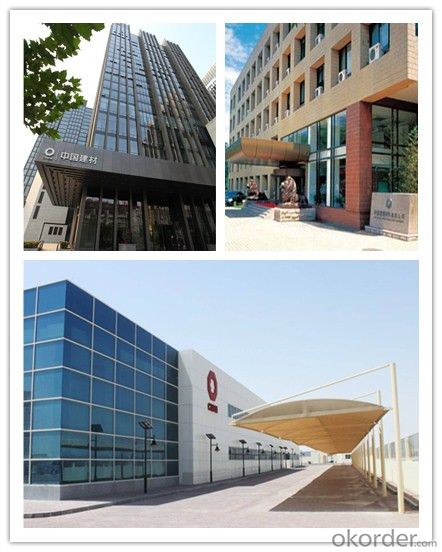
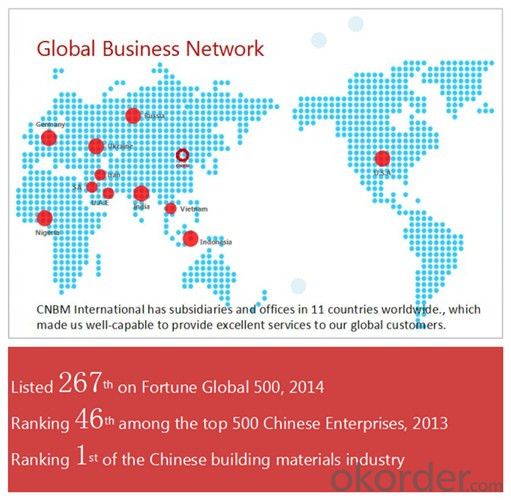
| After-sale service | CNBM provides the services and support you need for every step of our cooperation. We’re the business partners you can trust; you can relax and get on with doing business. |
| For any problem, please kindly contact us at any your convenient time, we’ll reply you in our first priority within 24 hours | |
| Advantages | Industry experience over 20 years. |
| Shipment of goods -More than 70 countries worldwide. | |
| The most convenient transport and prompt delivery. | |
| Competitive price with best service. | |
| High technical production line with top quality products. | |
| High reputation based on best quality products. |
Packaging & Delivery the Grade 304 Stainless Steel wire rod in Coils
| Packaging Detail | Sea worthy packing /as per customer's packing instruction |
| Delivery Detail | 15 ~ 40 days after receiving the deposit |
Products Show
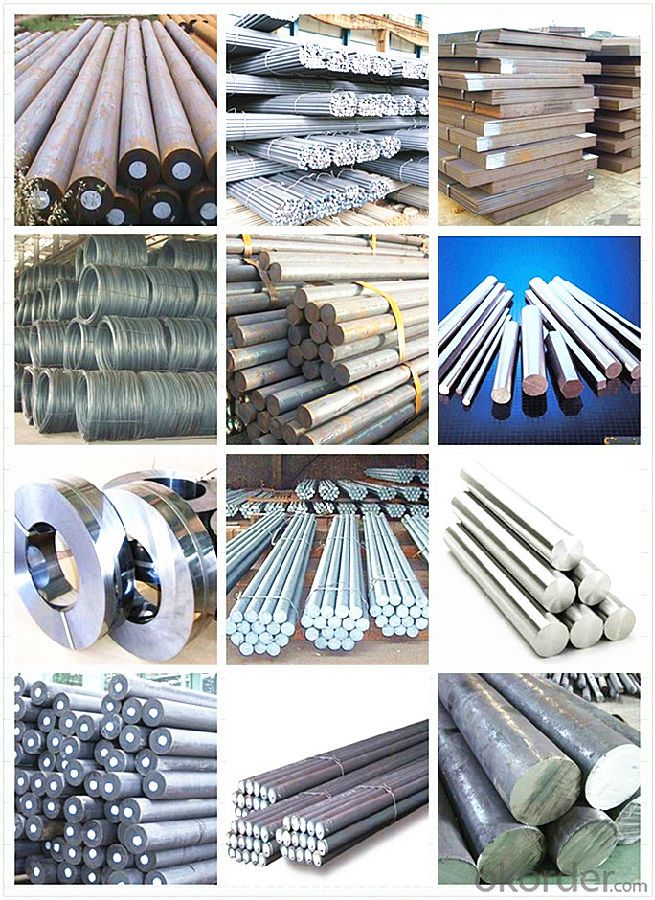
FAQ:
| Are you a trader or manufacturer? | Manufacturer |
| What’s the MOQ? | 3 metric ton |
| What’s your delivery time? | 15-35 days after downpayment received |
| Do you Accept OEM service? | Yes |
| what’s your delivery terms? | FOB/CFR/CIF |
| What's the Payment Terms? | 30% as deposit,70% before shipment by T/T |
| Western Union acceptable for small amount. | |
| L/C acceptable for large amount. | |
| Scrow ,Paybal,Alipay are also ok | |
| Why choose us? | Chose happens because of quality, then price, We can give you both. |
| Additionally, we can also offer professional products inquiry, products knowledge train (for agents), smooth goods delivery, excellent customer solution proposals. | |
| What's your available port of Shipment? | Main Port, China |
| What’s your featured services? | Our service formula: good quality+ good price+ good service=customer's trust |
| Where are your Market? | Covering more than 160 countries in the world |
- Q: What is the impact of titanium in special steel alloys?
- Titanium has a significant impact on special steel alloys as it improves the strength, corrosion resistance, and heat resistance of the resulting material. It also helps in reducing the weight of the alloy while maintaining structural integrity, making it ideal for applications in aerospace, automotive, and medical industries.
- Q: What are the specific requirements for special steel used in the defense armor industry?
- The specific requirements for special steel used in the defense armor industry are as follows: 1. High strength: Special steel used in defense armor must possess exceptional strength to withstand the impact of projectiles and explosives. It should be able to resist deformation and penetration under extreme conditions. 2. Hardness: The steel should have high hardness to provide resistance against cutting, drilling, or other forms of mechanical damage. This property ensures that the armor can withstand attacks and prevent penetration. 3. Toughness: Special steel needs to exhibit toughness, which allows it to absorb and dissipate the energy generated from impacts. This property helps to minimize the damage caused by projectiles and explosions. 4. Ballistic resistance: The steel should possess excellent ballistic resistance to effectively stop or deflect projectiles. It should be able to absorb and distribute the impact energy over a larger area, reducing the likelihood of penetration. 5. Corrosion resistance: Defense armor is exposed to various environmental conditions, including moisture and chemicals. Therefore, the special steel used in defense armor must have high corrosion resistance to ensure its longevity and effectiveness. 6. Weldability: The steel should be easily weldable to allow for the construction of complex armor structures. Weldability ensures that the armor can be conveniently assembled, repaired, or modified as per the specific requirements. 7. Heat resistance: Defense armor may need to withstand high temperatures generated from explosions or intense fire. Special steel should possess heat resistance to maintain its structural integrity and protective capabilities under such extreme conditions. 8. Lightweight: While maintaining the above properties, special steel should also be lightweight to ensure ease of mobility for soldiers and vehicles. The armor should not hinder movement or impose excessive weight burdens. Meeting these requirements is crucial to ensure the effectiveness and reliability of defense armor in providing protection to military personnel and assets.
- Q: What are the main applications of special steel in the agricultural sector?
- Special steel has various applications in the agricultural sector, including the manufacturing of agricultural machinery and equipment such as tractors, plows, and harvesters. It is also used for constructing storage silos, irrigation systems, and fencing materials. Additionally, special steel is utilized in the fabrication of cutting tools, blades, and parts for farming implements, ensuring durability and high performance in challenging agricultural environments.
- Q: What are the typical mechanical properties of special steel?
- The typical mechanical properties of special steel can vary depending on the specific grade and composition. However, some common characteristics include high tensile strength, good ductility, excellent hardness, and resistance to wear and corrosion. Special steels often exhibit superior toughness, heat resistance, and high fatigue strength, making them suitable for demanding applications in industries such as aerospace, automotive, and construction.
- Q: Can special steel be recycled?
- Yes, special steel can be recycled.
- Q: What are the properties of weathering steel?
- Weathering steel, also known as corten steel, possesses several distinctive properties. It exhibits high resistance to corrosion, making it suitable for outdoor structures without the need for protective coatings. Its unique composition allows for the formation of a stable rust-like appearance, providing an aesthetically pleasing and natural finish. Moreover, weathering steel has excellent strength and durability, making it ideal for various applications, including bridges, buildings, and architectural elements.
- Q: What is the cost of special steel compared to other materials?
- The cost of special steel compared to other materials can vary depending on a range of factors. Special steel, also known as alloy steel or tool steel, is typically more expensive than regular carbon steel due to its enhanced properties and composition. Its high strength, durability, and resistance to wear and corrosion make it suitable for specialized applications in industries such as automotive, aerospace, and construction. Compared to non-ferrous metals like aluminum or copper, special steel often comes at a lower cost. However, it is important to consider that different types of special steel can have varying price points. For instance, stainless steel, which contains chromium and other elements for enhanced corrosion resistance, tends to be more expensive than carbon steel. When comparing the cost of special steel with other materials such as plastics or composites, it is crucial to evaluate the specific requirements of the project. While these alternatives might have lower initial costs, they may not possess the same level of strength, heat resistance, or durability as special steel. Therefore, the long-term benefits and savings provided by special steel, such as reduced maintenance, longer lifespan, and improved performance, should also be taken into account. Ultimately, the cost of special steel compared to other materials is influenced by factors like the type and grade of steel, market demand, quantity needed, and any additional processing or finishing required. Consulting with suppliers, considering the specific application requirements, and conducting a thorough cost-benefit analysis will help determine the most suitable and cost-effective material choice for a particular project.
- Q: What are the requirements for special steel used in transportation equipment manufacturing?
- The requirements for special steel used in transportation equipment manufacturing typically include high strength and durability, excellent corrosion resistance, good weldability and formability, as well as the ability to withstand extreme temperatures and mechanical stress. Additionally, the steel should possess specific properties such as low weight, high impact resistance, and resistance to fatigue and wear. Compliance with industry standards and regulations is also crucial to ensure the safety and reliability of transportation equipment.
- Q: What are the advantages of using special steel over other materials?
- Special steel has several advantages over other materials. Firstly, it offers exceptional strength and durability, making it ideal for applications where high performance and reliability are crucial. Additionally, special steel possesses excellent resistance to corrosion, heat, and wear, ensuring longevity and reduced maintenance costs. Moreover, it provides versatility in terms of customization and can be tailored to specific requirements, making it suitable for a wide range of industries and applications. Lastly, special steel offers superior machinability and weldability, facilitating ease of processing and fabrication.
- Q: How is special steel used in the manufacturing of tools and dies?
- Due to its exceptional properties, special steel is widely utilized in the production of tools and dies. Also known as tool steel, special steel is specifically engineered to possess high hardness, wear resistance, toughness, and heat resistance. When it comes to tool manufacturing, such as drills, saws, hammers, and chisels, special steel is employed to guarantee durability and prolonged tool lifespan. The high hardness of special steel enables these tools to endure the demands of cutting, drilling, and shaping without easily becoming dull or deformed. Moreover, the wear resistance of special steel ensures that these tools can maintain their sharp cutting edges for an extended period, reducing the need for frequent sharpening or replacement. Furthermore, in the manufacture of dies used in various manufacturing processes, special steel plays a vital role. Dies are utilized to shape materials into specific forms or sizes, such as in forging, stamping, or extrusion processes. Thanks to the high toughness of special steel, dies can withstand the high pressure and impact forces involved in these processes without cracking or fracturing. Additionally, the heat resistance of special steel ensures that dies can endure the elevated temperatures generated during these operations without losing their shape or hardness. Special steel also possesses excellent machinability, making it easy to shape and form into intricate tool and die designs. This quality holds great significance in manufacturing, as it allows for the production of precise and intricate tools and dies, resulting in improved product quality and efficiency. Overall, special steel is a crucial material in the production of tools and dies due to its outstanding hardness, wear resistance, toughness, heat resistance, and machinability. These properties guarantee the durability, prolonged tool lifespan, and high performance of tools and dies, thus contributing to the overall efficiency and quality of various manufacturing processes.
Send your message to us
Grade 304 Stainless Steel wire rod in Coils
- Loading Port:
- Tianjin
- Payment Terms:
- TT OR LC
- Min Order Qty:
- 3 m.t.
- Supply Capability:
- 10000 m.t./month
OKorder Service Pledge
Quality Product, Order Online Tracking, Timely Delivery
OKorder Financial Service
Credit Rating, Credit Services, Credit Purchasing
Similar products
Hot products
Hot Searches
Related keywords
